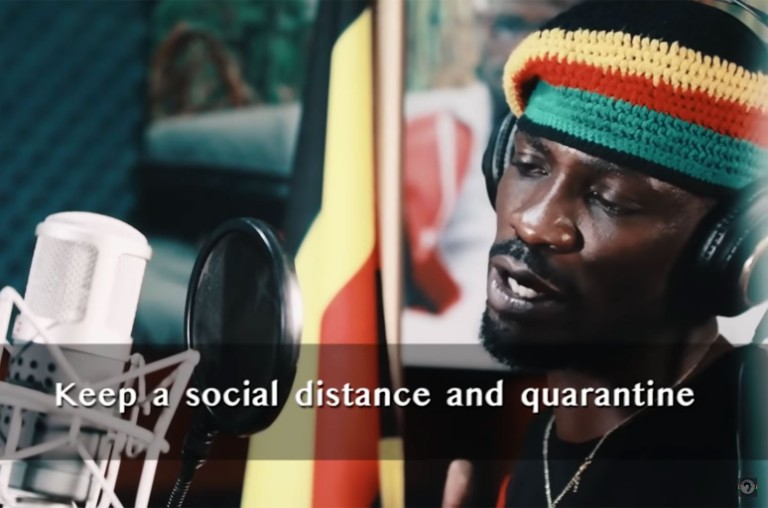African ministers foresee ‘break the glass moment’ with major debt relief

(GIN) – Multilateral lenders and investors are being asked to pony up a modest stimulus package that would halt the spread of the coronavirus in Africa and keep economies from crashing under the weight of debt-servicing costs.
African finance ministers, at a meeting last week, calculated that an injection of $100 billion – including $44 billion in debt-servicing wavers – would put off the likelihood of a recession and protect growth rates from falling further behind – now at 1.8% from 3.2% earlier this month.
Ken Ofori-Atta, chair of a World Bank-IMF committee called it a “break the glass moment.” The package is about 5% of the agreed upon stimulus package agreed to this week by U.S. legislators and signed by the President.
“There is a big likelihood of a recession,” said Bartholomew Armah of the U.N. Economic Commission for Africa (Uneca) in a press interview. “Our previous forecast should be seen as conservative because it was done at a time when the actual number of (corona) cases in Africa was low.”
South African Finance Minister Tito Mboweni put a fine point on the matter. “To say we are not trembling in our boots about what might be in the coming weeks and months is an understatement.”
Once a borrower from wealthy countries and institutions, Africa is now saddled with crushing debts to China ($143 billion), international debt markets ($55 billion), other banks, commodity traders and the so-called vulture funds.
An international activist group has seen it before. Inspired by universal faith traditions, Jubilee USA, a coalition of Jewish, Christian and Muslim religious groups, maintains that instead of paying debt, resources should go to reducing poverty and providing healthcare and education for those most in need.
“African finance ministers are right to call for a moratorium on all interest payments,” wrote Tim Jones of Jubilee UK, a partner group. “In the face of a huge health and economic crisis, halting debt payments is the fastest way to keep money in African countries.”
On news that the IMF will cancel some debt payments for poor countries, Jones wrote: “All poor countries that are being hit by the economic impacts of coronavirus need to benefit from this debt relief, regardless of the extent of the outbreak of the virus within their own country.
“Many countries are already in debt crisis and the economic impact of coronavirus is only going to make that worse. The IMF needs to ensure its loans are not used to bail out previous lenders, but instead help countries restructure debts. Otherwise, people will suffer through austerity and public spending cuts.”
 South African police unleash water cannons during virus lockdown
South African police unleash water cannons during virus lockdown
Mar. 30, 2020 (GIN) – Despite efforts by President Cyril Ramaphosa to enforce a pandemic lockdown at South Africa’s overcrowded slums without violence, defense forces were reported to be joining police in firing on the community with rubber bullets and water cannons.
Visuals of the heavy-handed treatment were seen in news broadcasts around the continent and on social media. The lockdown was launched with tighter restrictions than in other countries, and included bans on any sales of alcohol and cigarettes and even barred exercises outside the home.
“Our people will be looking to you to give them reassurance, not as a force of might but as a force of kindness,” the President said in a TV broadcast. “They must know that you will be looking after them.”
But in contrast to those gentle words, video images showed a soldier kicking and beating civilians caught after the lockdown. Water cannons and rubber bullets were fired to disperse people lining up outside food shops – a permitted activity under the lockdown.
Police were accused of tasering and beating a man to death after the man was caught going to buy beer. Media reports said he was beaten with a hammer.
According to the Financial Times, South Africa’s middle class was mostly able to stockpile supplies days before the lockdown. By contrast, in poorer townships and inner city areas were workers were recently paid, lines were longer.
Meanwhile, as the country’s positive cases jumped to 1,326 – the highest on the continent – President Ramaphosa announced the government will soon launch a 10 000-strong medical project to screen people for the virus. Three people have died so far from the coronavirus.
Other lockdowns around the continent include: Zimbabwe, starting a three-week lockdown on Monday, Lesotho will go on a 25-day lockdown. Ghana has announced a two-week lockdown in Accra and Kumasi starting Monday. Residents will only be allowed to go out to buy food, water and medicines and to use public toilets.
The Democratic Republic of Congo’s sprawling capital, Kinshasa, was meant to go into lockdown for four days, the measure was delayed after the announcement caused a spike in the price of basic goods and worries about unrest.
And in neighboring Congo-Brazzaville, President Denis Sassou Nguesso declared a health emergency and announced a 30-day lockdown in the country, combined with a night curfew, from Tuesday.
In the Sahel, Burkina Faso, the capital Ouagadougou, will be quarantined for two weeks from Friday and in Mali, the government has imposed some anti-coronavirus measures, including a night-time curfew, but said a long-delayed parliamentary election would go ahead on Sunday.
Handwashing, more in pop song by Ugandan singer Bobi Wine

Mar. 30, 2020 (GIN) – Ugandan pop star and opposition leader Bobi Wine, who describes himself as “a singer, an activist and a member of parliament” is known for his “must plays” – and his latest tune “Corona Virus Alert!,” is definitely one of them.
The lyrics remind listeners to wash their hands to stop the spread of the new coronavirus. But there’s another message – namely that time has come for Africa’s leaders to put more resources into building health care systems that serve both the rich and the poor.
“I hope that this song communicates to the people of the world that we have the ability to play a fundamental role in stopping the spread of this virus,” he says on a BBC video.
Wine and collaborator Nubian Li highlight prevention measures against the virus, which now has been reported in at least 46 of Africa’s 54 countries.
“For a long time we have been calling out the government of Uganda, like many governments on the African continent that have neglected the healthcare systems,” said Wine. “They have invested heavily in weapons and invested heavily in curtailing the voices of the people.”
As the coronavirus spreads across Africa, he said, “this is the time for them (the continent’s leaders) to remember that a functional healthcare system is not only a benefit for the poor but also the rich, because right now, as we stand, they cannot travel abroad for medical care. They have to face the same ailing medical care to deal with them. And this should be a message to them.”
Wine’s real name is Kyagulanyi Ssentamu. His criticism of Uganda’s government has made him a leader of those opposing longtime President Yoweri Museveni, who has ruled the East African country since 1986. Museveni is expected to seek reelection next year and Wine says he will challenge the president.
Click here to hear “Corona Virus Alert!”
(GLOBAL INFORMATION NETWORK creates and distributes news and feature articles on current affairs in Africa to media outlets, scholars, students and activists in the U.S. and Canada. Our goal is to introduce important new voices on topics relevant to Americans, to increase the perspectives available to readers in North America and to bring into their view information about global issues that are overlooked or under-reported by mainstream media.)




